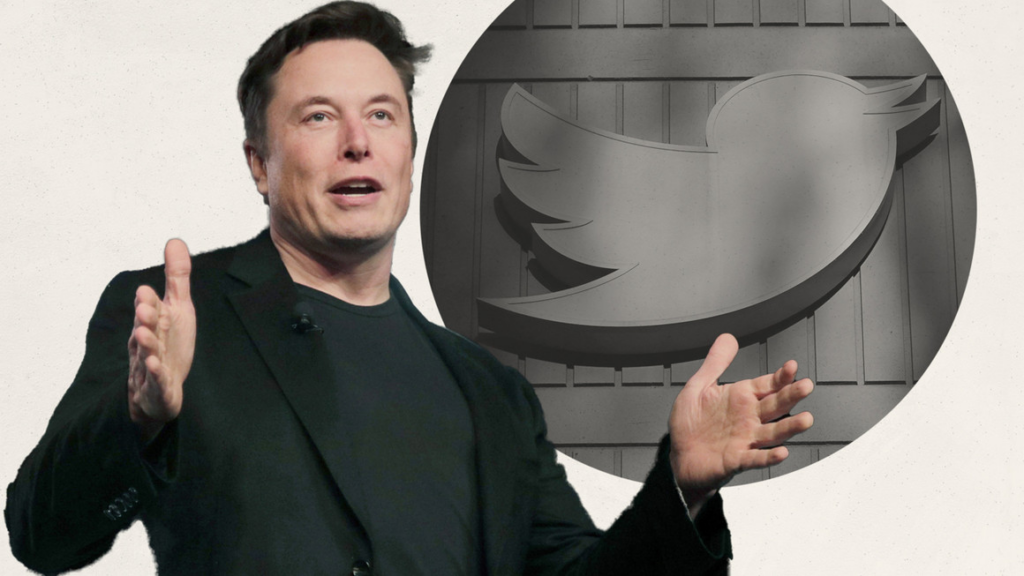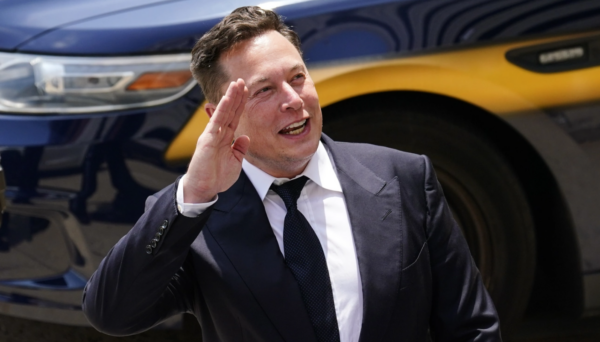Nobody says, “Hey, look at me!” like Elon Musk. Not the Kardashians, Donald Trump, or Marjorie Taylor Greene when she spots a camera following her. Musk’s tweets, threats, product promises, media interviews, and stunts like smoking drugs on Joe Rogan’s program are like clockwork.
Musk made headlines this week for vowing to sue Microsoft, talking to the BBC about the “painful” part of running Twitter, promising to compete with ChatGPT by creating his own AI platform, labeling NPR, BBC, and CBC “government-funded media” and then dropping it, claiming Twitter is “roughly breaking even,” telling Tucker Carlson birth control will lead to the “end of civilization,” and sharing his views on violent crime.
A light Elon Musk media week. But it shows his plan, probably certainly calculated, to hijack our newsfeeds by quipping and teasing others, making promises or prophecies, and hurling crude insults or strange hypotheses. In a free country, Musk’s incitements aren’t illegal.
Elon Musk has discovered the media’s greatest vulnerability.
As one of the world’s richest men, he probably deserves some of the press’s attention. Considering all that, why do reporters and editors continue to cover his every grandstand move? Why does the press support his narcissism?
Broken vapor trails Elonmusk. Today chronicles Musk’s failed predictions and pledges. Musk promised a “everything” Twitter app but hasn’t. Litigation 24/7? No sign yet. CO2 into rocket fuel? No show. List continues: To make Starlink superfast. Make ventilators. Flying car. Make Teslaquila. Candy business. No, yet. Musk insults people when not promising.
He mocked a crippled Twitter employee, branded a Thai cave rescuer a “pedo guy,” and insulted a U.S. lawmaker. Musk has gained attention by sharing conspiracy theories, endorsing hydroxychloroquine as a Covid-19 treatment, and making a poop emoji his Twitter auto-response to press questions.

Musk’s constant bluster should prevent the press from reporting his publicity hounding. As with Donald Trump, the press can’t resist covering Musk’s unnewsworthy antics, even though they’re as common as dog-bites-man.
Elon Musk found the biggest flaw in the media.
Musk beat reporters are right when they claim you never know which of Musk’s crazy stunts will become real news. Who could have believed him when he announced he would buy Twitter, given his track record? Musk’s burps may get publicity since a few of his acorns grow into trees.
That’s not why the press covers every Muskism. Last year, this column urged journalists quit Musk. Instead of reviewing his antics, the press has promoted him. Reporters get table crumbs. It’s a feast. He fights petty. They report it as a global battle. He constantly calling the media machine.
The process: Too many editors want to assign an easy-to-assemble Musk forecast, threat, or stunt piece. Readers adore the copy. All Musk-press synergy. Musk refined the phony news event, not invented it. For almost a century, con artists, pranksters, and publicity agents have flooded the press with fake stories like his.
In recent decades, hoaxers have convinced the press that Paul McCartney is dead. Another man said cockroach hormones cured his arthritis. Volkswagen recently pranked the press by announcing its name change to Voltswagen to promote its electric automobile. A Colorado family said a helium balloon lifted their son in 2009.
Some pranks are harmless. Most of them criticize journalists’ credulity and manipulation. Musk takes advantage of the media’s weakness and copy-hunger when he pursues publicity. His promises, kayfabe Twitter spats, and controversy-mongering provide the press personalities, drama, and questions. Musk publicity stunts make quarterly reports, city council meetings, and weather seem mundane to a grateful press. Musk should be a press corps employee.
Musk’s benefit? He has always disliked advertising, believing that a stunt or amazing product is enough publicity. Elon Musk: Tesla, SpaceX, and the Quest for a Fantastic Future by Ashley Vance states that Musk instructed his Tesla workers to make at least one public relations statement a week to boost car sales.
Musk revealed his press manipulation in a 2021 court hearing. “If we are entertaining, then people will write stories about us, and then we don’t have to spend money on advertising that would increase our product prices,” he said.
Musk promotes his companies and products by naming one of his children X ^ A-12 in 2020, sending a Tesla roadster into space, daring Vladimir Putin to “single combat,” publishing a Ukraine peace plan, or selling 20,000 flamethrowers. To quote Norman Mailer, these ads for himself build a buzz about him and his projects and portray him as an omnipresent, captivating copywriter.
Musk launched Pravduh.com, a press-watch site, in 2018 after the press turned against him for his business mistakes. It died like so many Musk initiatives, but not before he garnered some notoriety. As intended.
Musk has become a media stunt artist since owning Twitter, declaring plans, canceling them, disclosing Twitter files to Matt Taibbi and other journalists, and even tweeting from the toilet. He would do anything to keep it and himself in the headlines, and every day the media rewards his showboating with a deluge of coverage and analysis. But you wonder. Elon Musk—the issue? Is it the press, which knows Musk manipulates it but can’t stop?

